Wake Forest Team Members Present at the 20th Annual AASHE Conference
From October 22 – 24, Wake Forest sustainability staff members joined peers in Minneapolis for the 20th annual conference of the Association for the Advancement of Sustainability in Higher Education (AASHE).
Over the three days, Dedee DeLongpré Johnston, Erin Hamilton, Krista Stump, and Ashley Wilcox led workshops and sessions that shared expertise with colleagues working in various roles at institutions of higher education across the nation and globe.
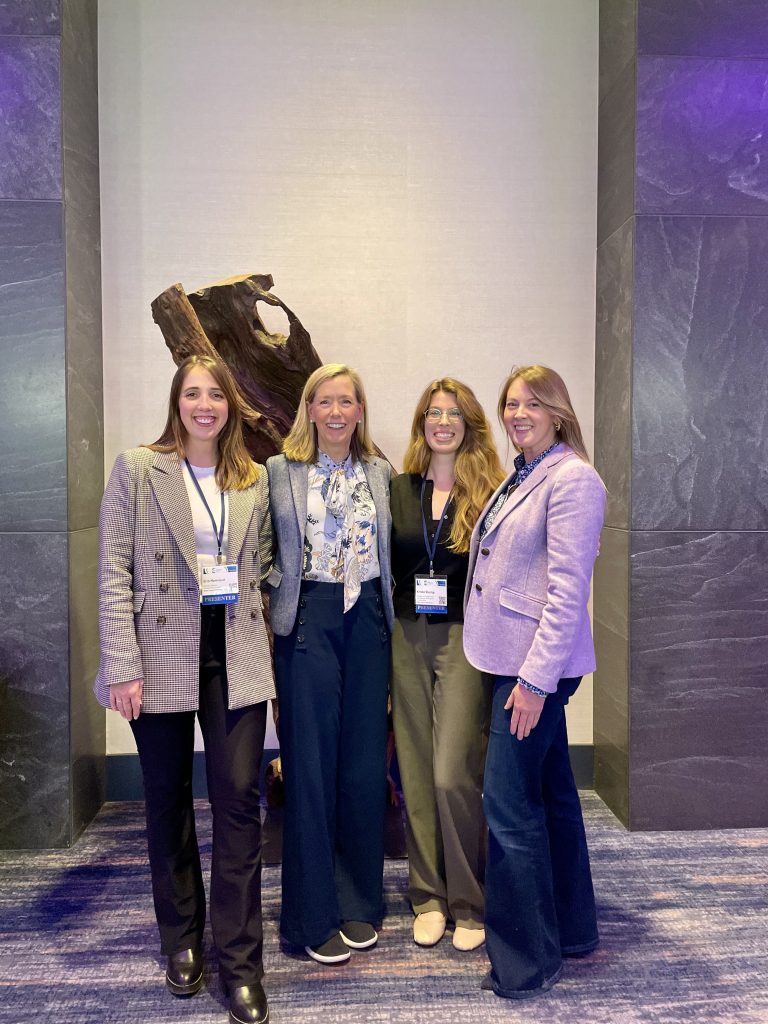
In the two decades since its founding, AASHE has become higher education’s largest network for sustainability practitioners, uniting institutions in its mission to accelerate the transition towards a sustainable world. The annual conference plays a key role in creating a third space for changemakers to exchange expertise about emerging challenges and innovative solutions.
As a founding board member of AASHE, DeLongpré Johnston was proud to participate in the 20-year celebration and to share insights during a keynote panel on “The Value of Sustainability in Higher Education.”
“These twenty plus years demonstrate what’s possible when we share solutions for collective impact. Relationships built over this time are rooted in vulnerability, trust, risk-taking, and accountability, and that has gotten us to where we are today,” DeLongpré Johnston said. “I’m grateful to be a part of an organization that has connected leaders at all levels for transformational change at our various institutions.”
In a pre-conference workshop, DeLongpre Johnston, Wilcox, and Hamilton shared design-thinking tools with a cross-section of registrants for use in the face of WTF (wild, turbulent, and fractured) disruption. In a hands-on design sprint – “Designing for Resilience in a WTF World” – participants learned how to approach the challenge in front of them like designers: with curiosity, openness, and a readiness to experiment.
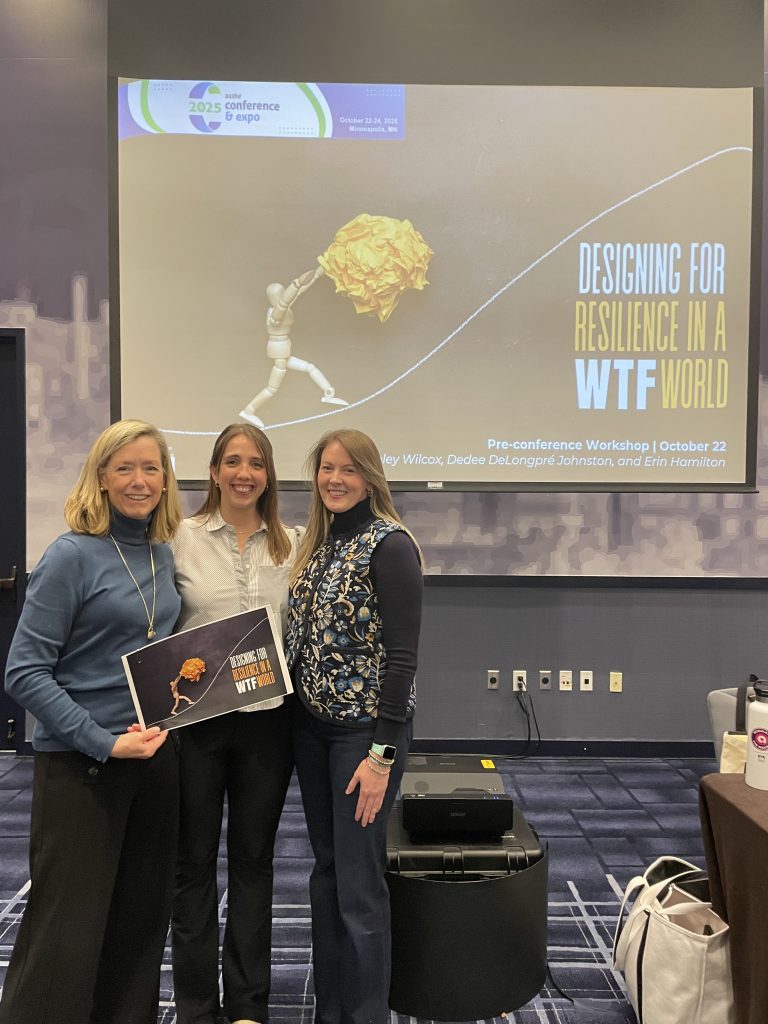
“Our session drew on Stanford’s design abilities and translated them into real-word leadership practices for sustainability work,” said Wilcox, a design thinking expert in Wake Forest’s School of Business. “We played, we laughed, we experimented, and we unpacked how to apply these skills inside our own WTF contexts.”
In an interactive workshop titled “Take a Spin: Experiential Learning in Action for Solutions-Focused Education,” Krista Stump drew from her expertise developing campus engaged learning opportunities to guide participants through Kolb’s experiential learning cycle. “After going through the experiential learning cycle once, we applied what we learned by designing a systems map for an industry of our choosing,” reported a participant. “Acting out the many ways food waste occurred along the supply chain before reaching consumers’ plates illuminated how we can look at the inputs and outputs of any system to address waste loops that need to be closed. It was a great example to animate what we were learning.”
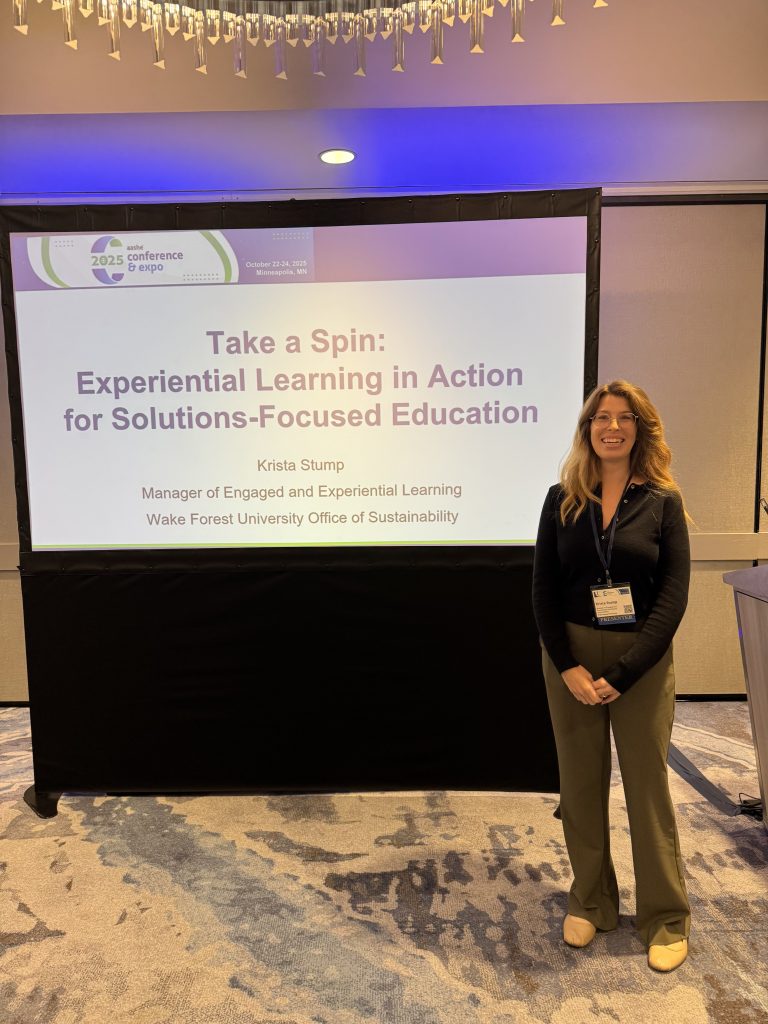
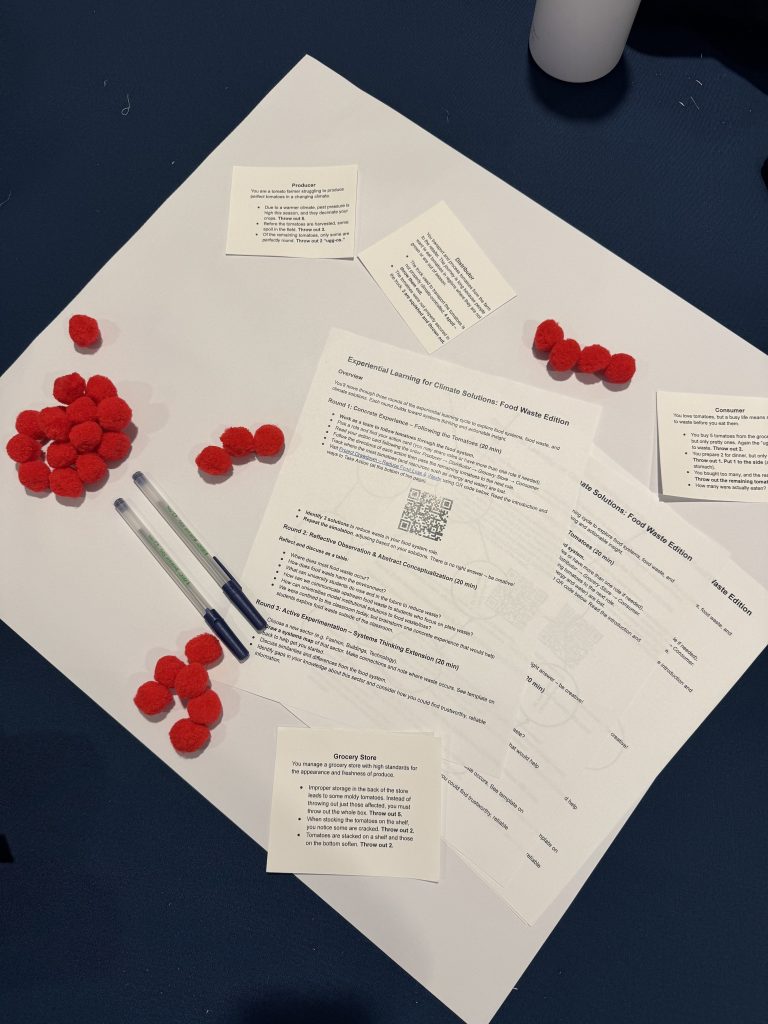
During the keynote, panelists, including our own DeLongpré Johnston, brought decades of experience to the main stage for an insightful discussion about the value of sustainability in higher education.
Joined on stage by counterparts from the University of Minnesota, University of New Hampshire and University of Texas at Arlington, she reminded audience members that the value of sustainability in higher education centers on strategies that yield long-term value for our institutions. Transformational change, which happens one relationship and one conversation at a time, is never-ending. What we know about the world we inhabit influences our ever-evolving trajectory – this is essential for our students who take the lessons of resilience and adaptation with them into their careers.
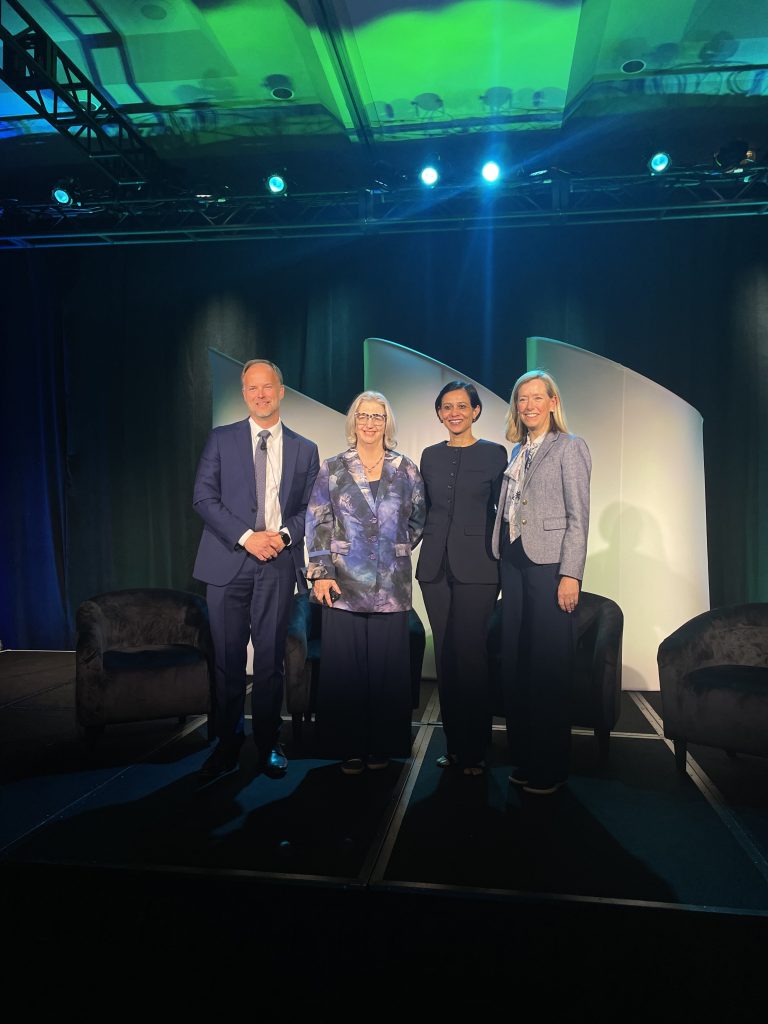
She also co-facilitated a session during which leaders across institution types interrogated the question on many colleagues’ minds: what is the most impactful organizational home for a sustainability officer? With no one-size-fits-all answer, the group collated results for a collaborative piece that will be published by AASHE to inform leadership at member institutions.
Asking the right questions in order to solve the right problems was a recurring theme across the sessions led by Wake Forest colleagues. “Discussing challenges and approaches with colleagues from various institutions was time well-spent” said Erin Hamilton. “I look forward to applying the lessons learned at AASHE 2025 and continuing our work to empower leadership for the sustainability transformation at home at Wake Forest.”
